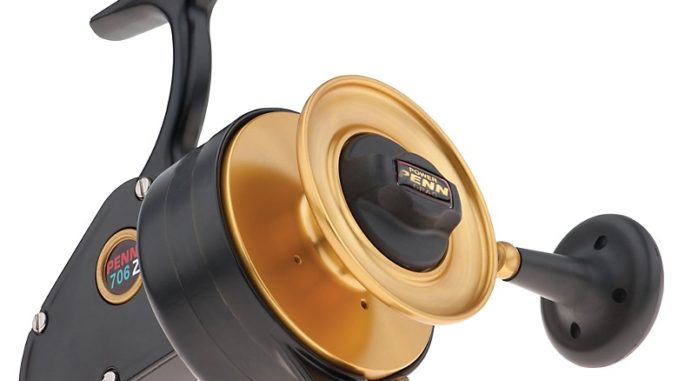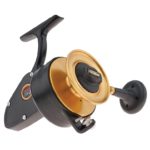
Bail-less spinning reels are less of a hassle
Even though they vary in size and quality, spinning reels are some of the most-basic fishing tools for both inshore and offshore anglers, no matter what species is being targeted. But there are actually two distinct versions of this reel; bailed spinning reels are the most common to see in South Carolina waters, but bail-less versions are becoming more popular.
When spinning reels first came on the market, they didn’t have bails, those semi-circles of light wire that we open before casting, close after casting and have to replace or repair with varying degrees of frequency, depending on how often they are fished, and how harsh the elements are. Bails were added to make the reels simpler for the average person to use, but as surf-casters and boat anglers have both come to learn, the bail is really more trouble than it’s worth, and doesn’t add to a reel’s usefulness, or even ease of use, at all.
Manning Smith of Pawleys Island Outdoors (843-979-4666) goes surf-fishing several times a week. He gave up on bailed spinning reels many moons ago, saying he’ll never go back. A couple of advantages are pretty evident at first glance, but he said other advantages are noticed the longer you use a bail-less spinning reel.
“The main reason bail-less versions became popular in today’s world is for the surf-casting striper fishermen in New England,” he said. “The plugs they use can cost $40 or more, and when you’re casting at schooling fish all day long, one thing you will have happen at some point is inadvertent bail closure, or bail snap,” said Smith. “The bail closes on its own during the cast, snapping your line and sending your $40 plug somewhere you’ll never find it.”
Smith said the bail wire is also the most frail part of a spinning reel and the one that causes the most problems on bailed versions. Removing the bail eliminates that possibility altogether. In the past few years, some manufacturers have sold a conversion kit that allows anglers to convert bailed reels into bail-less versions. This is a good alternative for anglers who already have spinning reels they are fond of, but this leaves reels unbalanced and less smooth and reliable than those specifically designed and made without bails.
While surf-fishermen brought about the resurgence of bail-less versions of this reel, boat-bound anglers also benefit from them. Like surf-fishermen, anglers on boats can cast to surface-feeding fish without the worry of bails closing too soon, or of accidentally forgetting to open the bail before a cast, which may not happen often but is plenty tragic when it does.
If you’ve fished with a bailed spinning reel long enough, you’ve had your fishing line get tangled in or wrapped around the bail wire, and you have probably had a bail wire get too tight to open smoothly or had corrosion or rusting problems in the bail area. If you’re really unlucky, you’ve had one bend or break, rendering your reel useless. Those are absolute non-issues with bail-less spinning reels.
It may seem daunting at first to anglers who have used nothing but bailed versions of spinning reels, but after just a few minutes, most agree that bail-less reels are easier to use.
“It takes about five minutes to get the hang of it, and after that, instead of wondering why people use bail-less spinning reels, you’ll wonder why in the world anybody uses the bailed ones,” Smith said.
With bailed versions, casting is done by holding the rod with one hand, opening the bail with the other, casting, closing the bail with one hand, then using that hand to reel while the other hand is still holding the rod. With a bail-less reel, you don’t have to open or close the bail. You pick up the line with the index finger of the hand that is holding the rod, cast, reel with the other hand and catch the line on the same index finger used during the cast.
Bail-less spinning reels aren’t as easy to find as bailed versions, but if you ask your favorite tackle shop, they can order one for you. Van Staal is a big seller of these reels, and Penn has their share of the market as well.






Be the first to comment